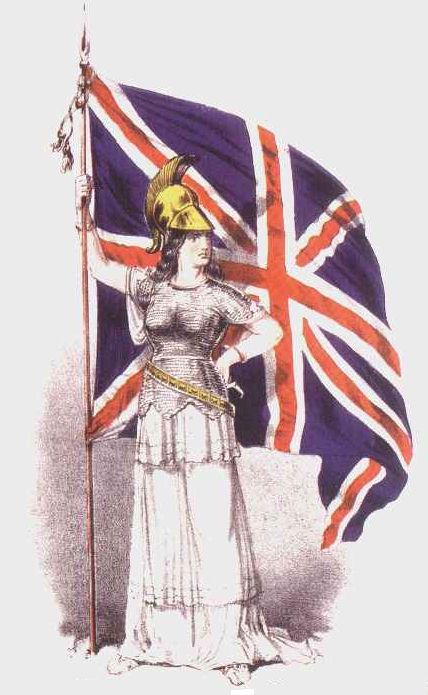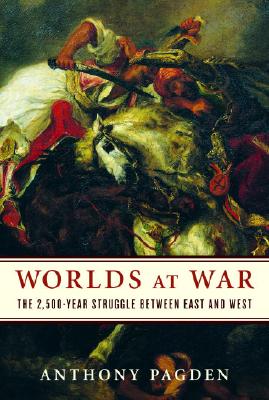
The United States is not the only Western power suffering from strategic uncertainty. James Frayne, a British political consultant who is a friend of this blog and an avid student of strategy, drew my attention to his post at The Campaign War Room:
“Who Does UK Grand Strategy?”
The House of Commons Public Accounts Committee – under the leadership of Bernard Jenkin – has been running a very worthwhile investigation into “Who Does UK Grand Strategy?” The uncorrected evidence has begun to be put online and it’s worth taking a look at. Peter Hennessy, Julian Lindley-French, and Hew Strachan gave evidence on 9 September, which you can read here. Foreign Secretary William Hague and National Security Adviser Sir Peter Ricketts gave evidence on 14 September, available here. Various figures from the MoD gave evidence on 16 September, available here.We have no meaningful national conversation in the UK on national strategy, so we owe Bernard Jenkin one for pushing this investigation forward. I haven’t had a chance to go through all the evidence yet and will post something longer on it further down the line.
Seems straightforward enough, but the quality of the links are really good; senior British officials in frank discussion of grand strategy. Here’s an example:
Q54 Robert Halfon: Would you make the distinction between a Grand Strategy and a National Security Strategy and do you agree that if there is that difference, a long term strategy needs to look forward 20 years plus?
William Hague : I think a National Security Strategy is an important component of it. I do not think a National Security Strategy is the entire strategy of the country, because there needs to be a strategy not only for maintaining our security, but for advancing our prosperity. These things are closely linked; it is only on strong economic foundations that it is possible to build an effective foreign or defence policy. But it cannot just be a defensive strategy. Was it not a Napoleonic maxim: “The side that stays within its fortifications is beaten”? I think one has to have a strong sense of how the country is going to extend its influence and reach out into the rest of the world, using whatever, to use the jargon, using soft power as well as hard power. So there is something more to the strategy of the country than the National Security Strategy.
Q55 Robert Halfon: Once you have devised that strategy, how does it withstand political pressures and a change of government?
William Hague : If it is good, of course, it will withstand a change of government not by seeking prior agreement across political parties but by being something that has been clearly demonstrated as something the country should pursue. I think that is really how consensus and cross party agreement works in this country. Of course, we are in a period now where it works in a different way between the two coalition parties, because since we are in government together, we have to formally agree things together. But I think if an approach to the future of the nation is shown and understood to be working, it will be something that is continued by other governments in the future.
Some thoughts:
First, there’s a substantial difference between the committee hearing in the House of Commons and what would transpire over here in the US House of Representatives or especially in the Senate. The seriousness of the exchange in this inquiry is evident, conversational it may come across at times, the MPs led by Bernard Jenkin appear genuinely interested in the opinion of the witnesses and the Commons seems to be exercising oversight in a meaningful sense of the word. The Brits also use adult vocabularies, unlike most American politicians. It would be hard to imagine Congressmen saying “otiose” in a hearing. Or, in a few instances, knowing what it meant ( too self-referential, I suppose).
At a Congressional hearing on grand strategy, the witnesses would submit prepared statements that would be read only by junior staff and the MoC would use the opportunity for grandstanding speeches on C-Span and prosecutorial questions aimed at scoring polemical debating points. Winesses in America might not be forthcoming and could possibly bring their own lawyers due to the risk of being boxed in by questions that could later be construed as perjury. Real oversight by Congress or interest in the granular subject matter of national security is limited to a small number of MoC, basically the leadership (majority and minority) of each house, and a few distinguished members like Rep. Ike Skelton, Sen. Richard Lugar and so on.
Secondly, I have to wince at the perception senior British officials have of American governmental capacity for strategic thinking or the effectiveness of institutions like the National Security Council, which the British govenment seeks to imitate. To be brutally frank, the NSC has been a dysfunctional apparatus for most of it’s existence and operated at peak performance ( in the sense of assuring the president’s control over foreign, defense and intel policies and bureaucracies) only under Eisenhower and Nixon with relatively decent performance as “honest broker/enforcer” under Ford and Bush I. and select years here and there of other administrations. The apex of strategic thinking in the USG, interestingly enough, was during the presidencies of FDR, Truman, Nixon and Reagan; the NSC did not exist under the first, was a work in progress under the second and a roman circus during the tenure of the last until Carlucci and Powell became successive NSC advisers.
If the US seems to have given greater thought to strategy of late, it was because the downward spiral of Iraq beat the living hell out of the Bush administration politically into opening the policy door to outside voices like General Jack Keane, Kalev Sepp, the Kagans, David Kilcullen, John Nagl, General Petraeus, General Mattis etc. Even then American COIN is an operational activity of the US military, not a whole of government strategy, that serves to kick the ball of grand strategy down field (which politicians like because grand strategy can raise controversial questions of values and political economy).
Third, With some amusement, unless I missed it in my quick read, senior British leaders appear to be unaware that Britain’s postwar choice under Clement Attlee to build a robust welfare state was a seminal act of grand strategy. British voters in 1945 made a strategic choice of butter over guns – or empire, or high levels of capital investment. As strategy is essentially a matter of ways, means and ends, devoting very high levels of GDP to public consumption puts narrow parameters on what a country will be able to do in the world. Or for that matter, at home in the future. American politicians clearly do not realize this either. Socialism in Europe has brought not the withering away of the state, but instead a withering away of the state’s military power.
Fourth, In reference to the second doc, Q215 Chair: Grand strategy is far more important to small or medium states than to a hegemon or an empire because their margin for error or waste is much smaller. The United States government can afford, relatively speaking, to gratuitously waste geopolitical opportunities (at least for a time) which it has been doing with gusto since 1991. Singapore, by contrast, cannot waste any of it’s chances if it wishes to remain prosperous and free. Britain needs a grand strategy if it’s leaders value and seek to pass on to posterity a British identity. The same can be said over here for America and some of the visceral anger inherent in the Tea Party arguably seems to come from their realization that American elites do not place too much importance on an American identity or sovereignty.
I sincerely hope the British can find not only a grand strategy, but the correct one. The world needs a strong and capable Britain and America does too.
ADDENDUM:
James Frayne delivers his verdict – Q: “Who Does UK Grand Strategy?”, A: “Nobody”:
There are three big things that stand out for me from the evidence. The first is that there was a strong consensus from the academics and the former defence officials that Britain has no real capability either for the creation of Grand Strategy specifically, or for competent strategic thinking more generally. They suggested that we do not have the institutional framework in place to create Grand Strategy and we do not have the functions within Government to train people – officials and politicians – in strategic thought.
Crucially, it was also suggested by the academics and former defence officials that we have actually got out of the habit of thinking strategically. In the past, when Britain had a more obvious formal global role, we were forced to think strategically. With relative decline and the consequent attachment of our foreign and security policy (to say nothing of our economic policy) to the US, NATO and the EU, we lost the capacity for independent thought. It was suggested by some of the former defence officials that Britain has something of an “anti-intellectual culture” which makes them sceptical about strategy-making; people prefer pragmatism.
Dr.Patrick Porter castigates the Tories:
Major war capability did not become obsolete with the end of the Cold War. The ‘north German plain’ symbol is the cliche and soundtrack of a dangerous complacency. Other states like China, India and Russia invest heavily in the kind of ‘kit’ that Osborne finds absurd. Russia recently fought a land war in Georgia, and puts its Blackjack bombers in British skies.
In fact, the dismissal of Russia as a has-been military power who went into history with the end of the Cold War is symptomatic of a complacency about power politics and major war, and we are still living with the consequences of our recent failure to take Russia seriously as a geopolitical heavyweight.











